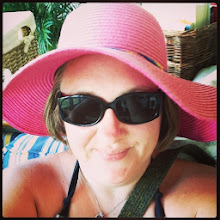A fantastic post on the The Blood-Red Pencil called Rules of Artistic License by mystery author Lillie Ammann got me to thinking about education and writing. Her post reminded me of one of the earliest rules I learned as a writer, over twenty years ago: You have to know the rules before you can break them.
In all honesty, I don't think I understood what that really meant for years. I thought if I spent a few years with my nose buried in grammar books, it gave me some kind of artistic license. I also thought that writing was a talent, not something that could be learned in a classroom. Naive, you betcha! Sure, you needed to know how to string sentences together to write, but there are devices we use as writers that may come naturally to some, but not others. After years of writing with absolutely no idea how to publish, I finally had the opportunity to go back to school and get my bachelor's degree.
My nonsense about not needing a classroom to learn about writing was quickly swallowed like a steaming bite of humble pie when the Act-101 adviser slapped me into a remedial writing program based solely on the fact that I never took my SATs. Sure, I breezed through the class with a perfect A score, but it was only the beginning of an education I will cherish for the rest of my life. Once I was able to enroll in actual writing courses, I was introduced to other writers. Some were my age, others younger, but our greatest asset was mutual experience and the workshop environment. I had shared my writing with friends in the past, but never a group of fellow authors.
I learned more from my writing classmates and professors than I could ever imagine, and while I'm certainly no Stephen King (yet) I know a bit more about publishing and writing these days. One thing I took away from school that has aided me continually since graduation is that even if I've heard it all before... even if I think I know everything there is to know about writing, there is always something else to learn. We can always use a refresher course in grammar, style, plot and character from time to time. It's like sharpening a pencil. The more you use it, the duller it becomes, so keep it sharp.
The internet is a great educational tool, but I also love to read about writing. Whether I'm researching a novel concept, or simply reading a great book like Jordan Rosenfeld's Make a Scene, I always want to grow and expand my writerly horizons.
So, writers, what are some of your favorite educational tools and books? What as a writer would you rather not live without?
Still As A Grave
1 week ago








4 comments:
Jenny,
I'm glad my post inspired you to write this one. I enjoyed reading about your writing class experiences and appreciate the insights you shared about having to know the rules to break them.
Jenny, thanks for both purchasing and mentioning my book! I'm thrilled when I find readers out here in cyberspace.
Jordan Rosenfeld
Ernest Hemingway set down the most important rule of all, the one that young poets always think doesn't apply to them. He said, "Every first draft is shit."
I love reading Strunk and White's ELEMENTS OF STYLE. Grammar, sentence structure, etc. Surprisingly fascinating. I've re-read it many times, always with pleasure.
Also EATS SHOOTS AND LEAVES. Punctuation. Thrilling.
But the one that I keep in mind the most while I am writing is Alexander Pope's ESSAY ON CRITICISM.
"True ease in writing comes from art, not chance,
As those move easiest who have learned to dance.
'Tis not enough no harshness gives offence;
The sound must seem an echo to the sense."
Thanks for writing such an inspirational post, Lillie.
Jordan, you're welcome. It's a fantastic book I think even seasoned writers would find useful.
Hi Doug. Elements of Style is a writer's must! I agree. That is a great quote from Pope that seems to echo my own thoughts. Thanks for sharing it!
Post a Comment